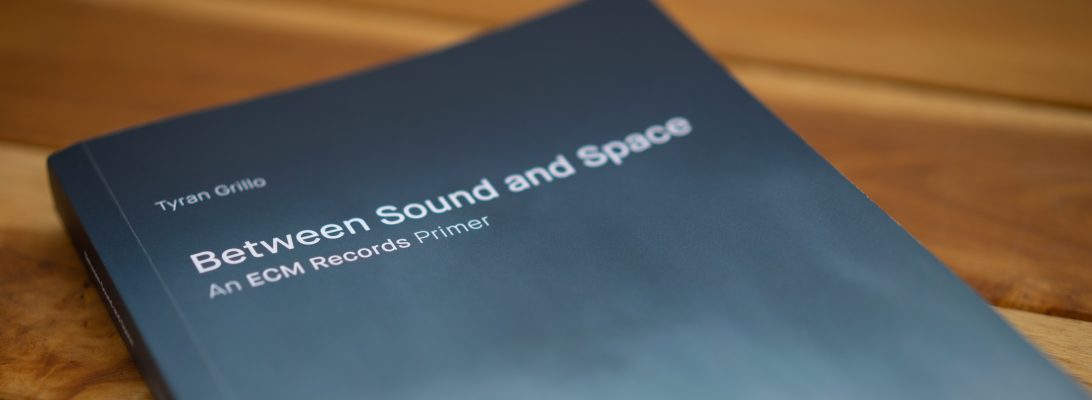Christian Wallumrød Ensemble
Sofienberg Variations
Christian Wallumrød piano, harmonium
Nils Økland violin, Hardanger fiddle
Arve Henriksen trumpet
Per Oddvar Johansen drums
Trygve Seim tenor saxophone
Recorded October 2001 at Sofienberg Kirke, Oslo
Engineer: Jan Erik Kongshaug
Produced by Manfred Eicher
Pianist Christian Wallumrød surely turned heads—not around in surprise but downward in reflection—with the 1998 release of his ECM debut, No Birch. After passing through the filter of Trygve Seim’s The Source and Different Cikadas in 2002, Wallumrød retained that project’s frontman (who here guests on tenor), held to his trio’s trumpeter, Arve Henriksen, and to them added fiddler Nils Økland and drummer Per Oddvar Johansen. The newly fashioned Christian Wallumrød Ensemble blossoms in an intimate program of composed and improvised material. Named for the Oslo church in which it was recorded, the album’s titular variations thoughtfully capture the spirit of their venue.
“Sarabande Nouvelle” is the touchstone of the program, appearing once as opener and twice more as variation. It bears a worn stamp of melancholy, as if it has been singing for years without sleep. This is precisely how Wallumrød’s music comes to us: wearing a patina. Thus formed, it holds firmly to an emotionally resolute façade even as it struggles to compose itself on the inside. And so, while the combination of horns and rubato swells lends imaginary power to the introduction, it nevertheless speaks of reality as if it were a sibling. That same sense of family lurks within “Memor,” wherein keyboard aligns with space, opening the floor to barest drumming and whispers of brass, reed, and bow. Wallumrød’s pianism is an arrhythmic heart that, through all the disruptions, maintains enough coherence to sustain life for as long as the blood of sound runs through it.
Forest-hued rumblings unearth the portraiture of “Edith.” With rasp of bark and stickiness of sap, it envisions a tree hanging its fruit over a cliff’s edge. Thus suspended, its sustenance finds balance in danger, and in that contradiction a supreme peace. Such is the tension in which the album’s themes incubate. Here the melancholy so easily ascribed to the music begins to blur and, like the cover photograph, kicks its imaging of the world off kilter. Thus skewed, disparity takes on a life of its own. Conversations flit between the silhouettes, coalescing in the alarm of pathos that is “Alas Alert.” This reverie of reveries is a braid of trumpet, air, and metallic signatures. Økland’s bow elicits the tremor, an indication that something in this body is fallible, something in its murmuring worthwhile. Økland adds further shading to “Psalm” and “Liturgia,” one the crossing to the other’s hatching. These decidedly sacred pieces turn memories into sliders on a mixing board of psychological experience that can be tweaked to suit the needs of every crisis. Such inner adaptability is key to understanding the method behind this record, in which there is no promise but only the fulfillment of something unnamed, if not also unnamable. Never before such delicate dissonance. Never such microscopic inference. The most haunting moments, in fact, come from the album’s ticks: a series of “Small Pictures” that surveys abandoned architectures with a ghost hunter’s eye. Ascending and descending motifs walk an Escherian staircase, leaving only a Möbius strip of gray footsteps to show for their having been there.
“Losing Temple” closes the session’s eyes with introspective pianism, with the fiddle again playing a descriptive role. The flute-like trumpeting from Henriksen is astonishing, the osmosis of his step likewise, which treats every wall as a cinematic gateway. This music fades like leaves with the wind that might never have existed to begin with. Their colors linger all the same.
Yet where the album’s spirit becomes clearest is in its handful of variations, which re-spin their referents in slow watercolor bleeds of storytelling. These are not, however, mere refrains, but parallel universes in which the bodies of iterations overlap without the others’ knowledge. Intelligent without being intellectual, it is music that breathes, for we are the lungs to its air.


